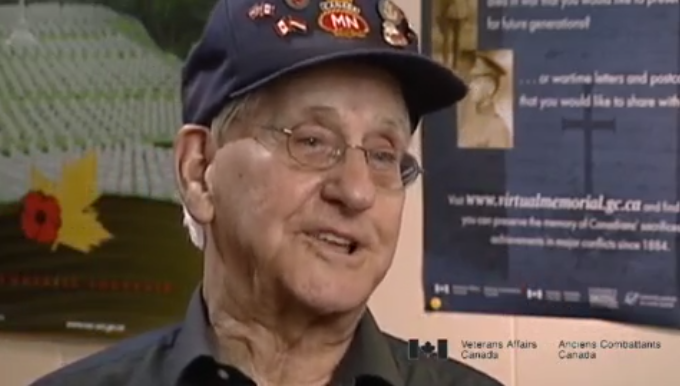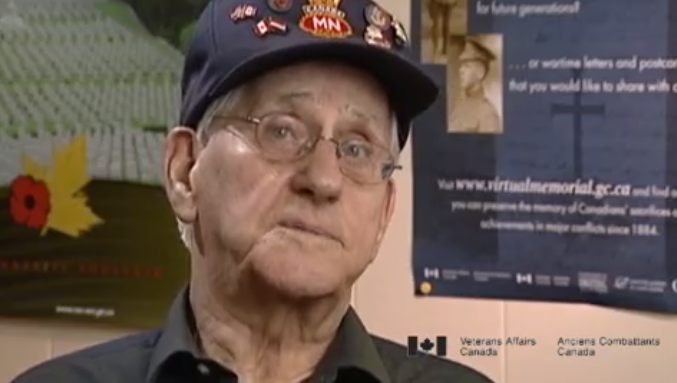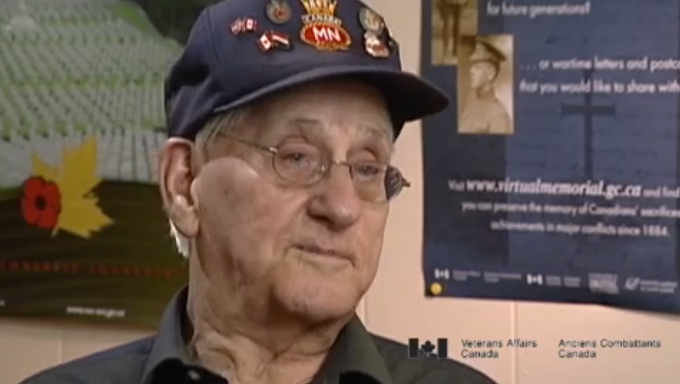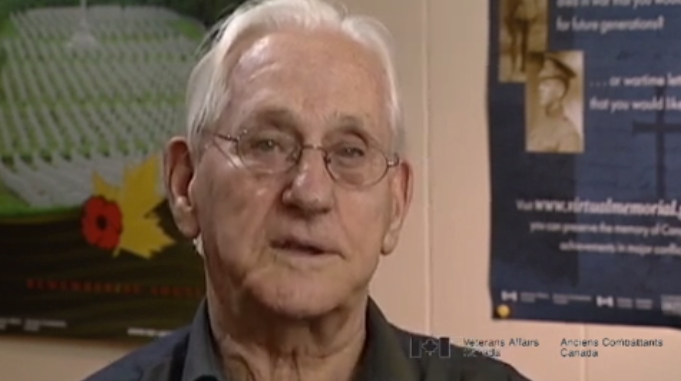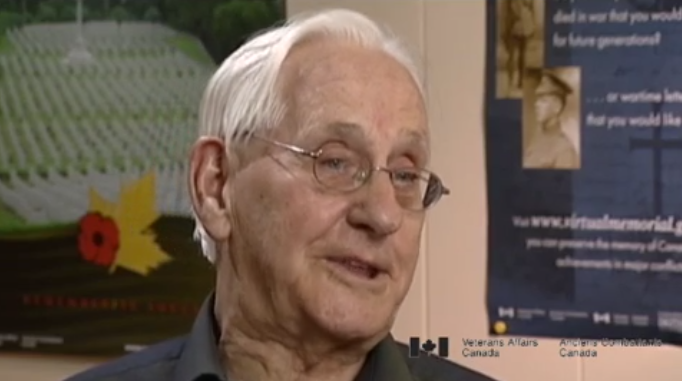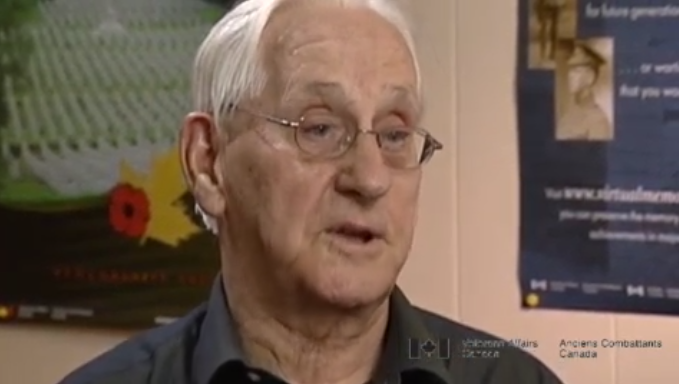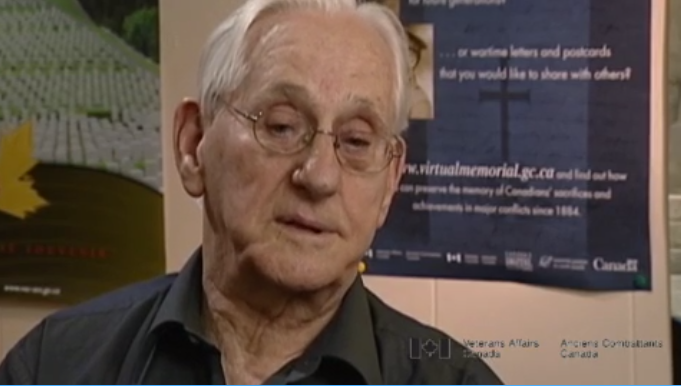You didn’t know whether you’d live or die.
Heroes Remember
You didn’t know whether you’d live or die.
Transcript
They weren’t after a warship, they were after a supply route.
You know, everywhere you try to cut off the supplies, and once
you cut off the supplies, the nation is finished. England would
have been finished if the German U-boat were to win the Battle
of the Atlantic. We lost five ships by dive bombers, and
torpedo planes, and one by U-boat. But the planes would come
down, you’d hear that roar, you know, that awful roar. They
dropped their bombs, and you couldn’t see them. They dropped
alongside the ship and the ship would go up like a
jack-in-the-box. You didn’t know if you were going to live or
die, or you’re gonna drown, or if you were gonna freeze to
death, you know. You didn’t know because the water would be
that cold. But you didn’t know what was going to happen, you
know. You just got through it by the grace of God, you know,
one hand for the ship and one hand for ourselves, so to speak.
But we kept our ack-ack up, but when we got into … they called
it the Russian Run, convoy run. And if Russia didn’t happen to
get the supplies, the tanks, the guns, the food to open the
eastern front, Russia … the Germans would have probably went
right through because they hardly had nothing to fight with.
They were right through the gates of Moscow. Well, they didn’t
take a lesson from Napoleon, you know, when they were out in the
cold weather and everything. But we were fitted out like army
explorers, or Arctic explorers. But we got in the ice, the thin
ice parts, and we seen one plane down and some of the, the pilot
or a couple of them on top of it, you know. I don’t know if
they got picked up or not. I don’t remember seeing them getting
picked up. But in our ship, the captain’s report … that we took
down two planes. But two days out, before we reached Murmansk,
we were out of ammunition. And then they bombed the hell out of
Murmansk, because there was only 30 miles away from Norway, or
Finland, you know. Because the Fins were fighting the Russians,
or vice versa, and then they made an agreement, I think, the
story goes, and that they had a base there in Finland as well as
Norway. And there was only 30 miles away from Murmansk. Well,
you might as well say that Murmansk was the front line. And we
got the orders then we’d go alongside, and we had two big heavy
lifts there you know, and unload the pier, at the piers. It was
terrible. And you had the white Russians who refused to fight
for Russia during the war. They were all prisoners of war, and
they took them and made them work as slaves, and tried to
repair. We’d pull away from the dock after the rail would
break, we’d rebuild it again and then we’d come back in. The
cargo was sitting on tracks, you know, loaded up and going to
kingdom come, just blown up. Then the order come then to leave
Murmansk, that it’s getting so bad that the ships had to get out
quick. And we got back to the UK. And they … it was September
27th, I think. Anyway, we got back to England on the 8th of
July, 1942. And in that convoy we split up. Half of the ships
went into Iceland, that were going to the United States and
Canada, and the other half were going to the UK. And the ones
that were going into Iceland, they struck into a British mine
field - friendly fire, so to speak - a British mine field,
and six ships got blown up.
Description
Mr. Evans describes his feelings while being under attack on the way to Murmansk, the destruction of the docks at Murmansk by the Luftwaffe, and returning safely to England while the other half of his convoy strays into an Allied minefield and loses six ships.
George Harold Evans
George Harold Evans was born March 17, 1926 in St. John’s, Newfoundland. He was one of thirteen children. His father, a First World War Veteran, worked in the Newfoundland fishery and Mr. Evans fished with his father.
Meta Data
- Medium:
- Video
- Owner:
- Veterans Affairs Canada
- Duration:
- 4:01
- Person Interviewed:
- George Harold Evans
- War, Conflict or Mission:
- Second World War
- Branch:
- Merchant Navy
- Units/Ship:
- SS Pieter de Hoek
- Occupation:
- Messboy, Fireman/Stoker
Related Videos
- Date modified:



